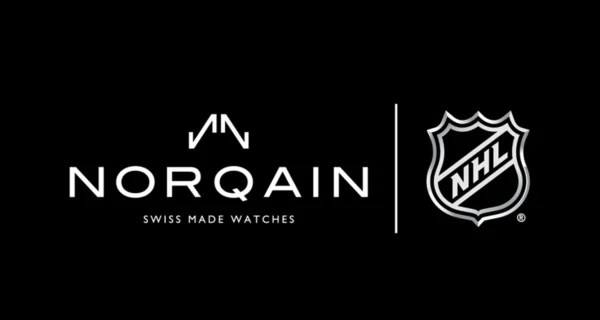NHL coaches earn an average salary of around $2 million per year. Let’s explore this topic further.
Coaching in the National Hockey League (NHL) is not only a prestigious role but also a highly lucrative one. The average salary for NHL coaches is approximately $2 million per year.
However, it’s worth noting that this figure can vary significantly depending on factors such as experience, success, and team budget.
Head coaches for successful teams or those with a solid track record can earn even higher salaries, often surpassing the $3 million mark.
On the other hand, assistant coaches tend to receive lower wages, typically ranging from $200,000 to $1 million annually.
Despite the variability, coaching in the NHL is generally financially rewarding for those who reach the profession’s pinnacle.
Understanding NHL Coaching Salaries
Regarding the NHL, coaches’ salaries are crucial in team management and performance.
In this section, we will delve into the factors determining NHL coaching salaries, compare them to wages in other professional sports leagues, and explore why these salaries are essential for team success.
Factors That Determine NHL Coaching Salaries
In the National Hockey League, coaching salaries are determined by several factors. These factors include:
- Experience and track record: Coaches with a proven record of success, championships, and playoff appearances are likely to command higher salaries.
- Market demand: The need for a coach and the market’s competitiveness also influence salaries. Teams in significant hockey markets or those needing experienced coaches will likely offer more lucrative contracts.
- Team performance: A team’s success under a coach’s guidance directly affects their salary negotiations. Coaches who lead their teams to the playoffs or achieve high winning percentages are often rewarded with higher pay.
- Contracts of other coaches: The salaries of other coaches in the league can impact negotiations. Coaches may use the contracts of their peers as leverage during salary discussions.
Comparison of NHL Coaching Salaries to Other Professional Sports Leagues
NHL coaching salaries tend to be lower than other professional sports leagues. While the exact figures vary, NHL coaches generally earn less than their counterparts in the National Football League (NFL), National Basketball Association (NBA), and Major League Baseball (MLB).
This discrepancy can be attributed to several factors, such as revenue generation, TV deals, and the popularity of the respective leagues.
Considering the demands of coaching in the NHL, it’s worth noting that the salaries may not reflect the immense pressure and responsibilities that come with the position.
NHL coaches face unique challenges, including managing teams through the demanding regular season, preparing for high-stakes playoffs, and making in-game adjustments to outwit opponents.
Why Do NHL Coaching Salaries Matter for Team Performance?
NHL coaching salaries hold significant importance for team performance and success. Here’s why:
- Attracting top coaching talent: Competitive salaries help teams attract experienced and talented coaches. A well-paid coach brings a wealth of knowledge, leadership skills, and strategic expertise, which can enhance a team’s chances of winning.
- Motivation and commitment: Generous coaching salaries motivate coaches to perform at their best and commit fully to their team. Financial stability ensures coaches can solely focus on developing game plans, mentoring players, and creating a winning culture.
- Player development: Coaches play a crucial role in developing young talent and maximizing their players’ potential. Higher salaries allow teams to invest in the skilled coaching staff, benefiting player development programs and, ultimately, the team’s overall performance.
The salaries of NHL coaches are not just numbers on a contract but crucial factors in team dynamics and success.
By offering competitive wages, teams can attract and retain top-notch coaching talent, contributing to better player development, improved game performance, and increased chances of achieving championship glory.
Experience and Track Record
Regarding NHL coaches, experience and track record are crucial in determining their salaries.
Coaches with extensive experience and a successful track record command higher paychecks, reflecting the value they bring to their teams.
Two key factors influencing coaching salaries are the impact of coaching experience and success and achievements.
Impact of Coaching Experience on Salaries
Coaching experience is a significant determinant of salary in the NHL. The more experience a coach has, the more valuable their insights and leadership become.
NHL teams value coaches who have spent years honing their craft, developing strategic thinking, and acquiring valuable insights into the game.
As a result, coaches with extensive experience often negotiate higher salaries due to the knowledge and expertise they can bring to the team.
Here is a breakdown of how coaching experience affects salaries in the NHL:
| Years of Experience | Average Salary Range |
| Less than 5 years | $500,000 – $1.5 million |
| 5-10 years | $1.5 million – $3 million |
| 10+ years | $3 million – $5 million |
The above table provides a general indication of how coaching experience can impact salaries in the NHL.
However, it is essential to note that these figures may vary based on individual performance, team success, and other factors.
How Success and Achievements Affect Coaching Salaries
Success and achievements are vital benchmarks to determine NHL coaching salaries. Coaches who have led their teams to championships, consistently secured playoff berths, or achieved remarkable turnarounds are highly valued.
Their ability to motivate and strategize effectively can profoundly impact team performance and success, making them sought-after assets.
When it comes to success and achievements, NHL coaching salaries can skyrocket. Here are some noteworthy factors that can influence a coach’s salary based on their success:
- Championships won
- Playoff appearances
- Regular season records
- Player development success
Coaches with a proven track record of success and achievements can negotiate higher salaries due to the positive impact they bring to the team.
NHL organizations recognize the value of experienced coaches with a winning mentality and are willing to compensate them accordingly.
Team Performance And Success
When determining the salaries of NHL coaches, team performance and success play a crucial role.
NHL teams invest heavily in their coaches, believing their expertise and leadership will ultimately lead to positive outcomes.
The Correlation Between Team Performance and Coaching Salaries
The performance of an NHL team directly impacts the salaries of its coaches. With high winning percentages and regular playoff appearances, coaches who guide their teams to success are often rewarded with higher wages.
On the other hand, coaches of struggling teams may face scrutiny and potential pay cuts.
In addition to wins and losses, other factors such as player development, strategy implementation, and communication skills influence coaching salaries.
Successful coaches are adept at getting the best out of their players, managing team dynamics, and building effective game plans.
How Playoff Appearances and Championships Affect Coaching Salaries
Playoff appearances and championships significantly impact coaching salaries in the NHL. Coaches who guide their teams to postseason success are often viewed as instrumental in their achievements and rewarded accordingly.
For teams that consistently make the playoffs, coaches can expect to see their salaries rise as a sign of appreciation for their ability to maintain a high level of performance.
Furthermore, coaches guiding their teams to championships may receive substantial salary increases or even contract extensions to ensure continued presence and success.
| Performance | Average Salary Increase |
| Regular Playoff Appearances | 10-20% increase |
| Conference Finals Appearance | 20-30% increase |
| Stanley Cup Finals Appearance | 30-40% increase |
| Stanley Cup Championship | 40%+ increase or contract extension |
Coaches who consistently lead their teams deep into the playoffs demonstrate their ability to excel under pressure, make successful in-game adjustments, and inspire their players to perform at their best when the stakes are highest.
NHL teams highly value these traits, leading to increased compensation for their head coaches.
Ultimately, the salaries of NHL coaches reflect the belief that their leadership and coaching abilities directly impact team performance and success.
The correlation between team performance, playoff appearances, championships, and coaching salaries ensures that successful coaches are appropriately rewarded for their contributions to their teams.
Market Demand and Competition
NHL coaches’ salaries fluctuate based on market demand and competition, which play crucial roles in determining their compensation.
The Role of Market Demand in Determining Coaching Salaries
Market demand plays a significant role in determining the salaries of NHL coaches. As the demand for skilled and experienced coaches increases, so does their value in the market.
NHL teams are willing to pay higher salaries to attract top coaching talent who can lead their team to success.
The demand for coaches can vary from season to season, depending on factors such as team performance, changes in management, or new team ownership.
Highly sought-after coaches with a track record of success are in high demand, and teams are willing to invest heavily in their expertise.
This demand can increase coaching salaries and create a competitive market for top talent.
The Influence of Competition Among Teams on Coaching Salaries
Competition among NHL teams also significantly influences coaching salaries. Groups aim to secure the services of the best coaching talent available to gain a competitive edge over their rivals.
This competition can lead to bidding wars and substantial salary offers to attract and retain top-tier coaches.
As teams compete for the same pool of coaching talent, the salaries offered to coaches can escalate rapidly.
The higher demand for these highly sought-after coaches drives up their market value, forcing teams to offer lucrative salary packages to ensure their acquisition.
This intense competition among teams ultimately benefits the coaches, as they have the leverage to negotiate higher salaries and better contract terms.
The Highest-paid NHL Coaches
In professional sports, it’s no secret that coaches play a vital role in guiding their teams to success.
They strategize and motivate players and are responsible for making crucial decisions that can impact the outcome of a game or even an entire season.
In the National Hockey League (NHL), coaches are no exception. Some of the league’s top coaches are handsomely rewarded for their efforts.
In this section, we’ll delve into the world of NHL coach salaries and closely examine the highest-paid coaches in the game.
Analysis of the Highest-paid NHL Coaches
Being an NHL coach is not easy. It requires a deep understanding of the game, excellent leadership skills, and the ability to make split-second decisions under pressure.
As a result, it’s no surprise that the salaries of the league’s coaches reflect the high demands and expectations placed upon them.
When analyzing the salaries of the highest-paid NHL coaches, one name that stands out is Joel Quenneville.
Quenneville, formerly with the Chicago Blackhawks and now the head coach for the Florida Panthers, earns a staggering salary of $6 million per year.
This makes him one of the highest-paid coaches not only in the NHL but in all of the professional sports.
Another coach who commands a significant salary is Mike Babcock. Babcock, who currently coaches the Toronto Maple Leafs, earns an impressive $5.3 million annually.
His extensive experience and successful track record make him a valuable asset to the Maple Leafs organization.
How Their Salaries Compare to Other Coaches in the League
When comparing the salaries of the highest-paid NHL coaches to others in the league, it’s clear that there is a significant gap.
While coaches like Quenneville and Babcock earn millions yearly, the average NHL coach’s salary is substantially lower.
According to reports, the average NHL coach earns around $1.5 million annually, with some earning as little as $500,000.
It’s important to note that the salaries of NHL coaches are influenced by various factors, including the team’s success, the coach’s level of experience, and the market value of coaching talent at any given time.
Additionally, units with larger budgets and higher revenue streams are often able to pay their coaches more generously.
In conclusion, the highest-paid NHL coaches are handsomely rewarded for their expertise and contributions to their teams.
While their salaries may seem astronomical compared to the average coach, these top earners have proven themselves through their coaching abilities and the success of their teams.
As the NHL continues to evolve, it will be interesting to see how coaching salaries develop and whether new contenders will emerge as top earners in the league.
Factors Contributing To High Coaching Salaries
NHL coaching salaries are influenced by various factors, such as team success, experience, and market demand. Head coaches earn significantly more than assistant coaches, contributing to the high salaries enjoyed by NHL coaches.
Identifying the Factors That Make Certain Coaches Earn Higher Salaries
Regarding NHL coaches, their salaries can vary greatly depending on various factors. Let’s take a closer look at the key elements that contribute to high coaching salaries:
How Reputation and Popularity Impact Coaching Salaries
A coach’s reputation and popularity play a significant role in determining their salary. Coaches who have a strong track record of success and are well-respected within the hockey community often command higher salaries.
Popularity among fans can also help boost a coach’s earning potential. The more popular and well-liked a coach is, the more likely they will attract larger crowds and increase ticket sales for their team.
This can translate into higher revenue streams, allowing the team to allocate more funds towards coaching salaries.
Furthermore, reputation and popularity can also impact a coach’s ability to secure endorsement deals and sponsorship opportunities.
Well-known and respected coaches may be sought after by brands and companies looking to align themselves with successful hockey figures.
These endorsement deals can provide a significant financial boost to a coach’s overall income.
| Factor | Description |
| Experience | Coaches with extensive experience, whether as former players or in coaching roles, are often valued higher and command higher salaries. |
| Success record | Coaches who have led their teams to multiple playoff appearances and championships or have consistently performed well tend to earn higher salaries. |
| Team performance | If a coach can significantly improve a team’s performance and lead them to success, it enhances their reputation and bargaining power. |
| Market demand | Coaches in high-demand markets or teams with a passionate fan base often have greater earning potential. |
Ultimately, high coaching salaries in the NHL are determined by a combination of factors such as a coach’s reputation, popularity, experience, success record, team performance, and market demand.
While not all coaches may earn top-tier salaries, those with a winning track record and a strong presence in the hockey community are more likely to command higher compensation.
Gender Disparities in NHL Coaching Salaries
NHL coaching salaries reveal significant gender disparities, highlighting the wage gap between male and female coaches in the league.
These discrepancies raise questions about pay equality in professional hockey coaching positions.
Examining Gender Pay Gaps Among NHL Coaches
In professional sports, discussions about gender disparities in pay are not uncommon.
Like many other major sports leagues, the National Hockey League (NHL) has faced scrutiny for its lack of representation of women in coaching positions and the discrepancies in salaries between male and female coaches.
The gender pay gap among NHL coaches needs attention. Despite women’s increasing visibility and success in professional hockey, the opportunities for female coaches in the NHL remain limited.
This lack of representation is evident in the difference in salaries between male and female coaches.
According to recent studies, male NHL coaches earn substantially higher salaries than their female counterparts.
On average, male coaches earn an estimated $2 million annually, while female coaches earn only about $200,000 annually.
This stark disparity reflects the gender bias that persists within the coaching ranks of the NHL.
Reasons Behind the Discrepancies and Initiatives for Change
The gender pay gap among NHL coaches can be attributed to several factors. Firstly, the underrepresentation of women in coaching positions limits their ability to negotiate higher salaries.
With fewer opportunities being offered to women, it becomes much more challenging for female coaches to earn the same compensation as their male counterparts.
Furthermore, male coaches and executives have historically dominated the sports industry, including the NHL.
This male-dominated environment perpetuates biases and discrimination against women, which ultimately affects salary negotiations and opportunities for advancement.
The lack of diversity and inclusivity within the coaching ranks of the NHL hinders progress.
Despite these challenges, positive initiatives are being taken to address the gender disparities in coaching salaries.
Organizations like the NHL Coaches’ Association are working towards creating more opportunities and fairer compensation for female coaches.
These initiatives aim to break down the existing barriers and provide equal opportunities for male and female coaches to succeed in the NHL.
Additionally, public awareness and advocacy play a crucial role in driving change.
By bringing attention to the disparities and advocating for gender equality in coaching positions, we can push for more excellent representation and fair compensation for female coaches in the NHL.
These efforts are essential for building a more inclusive and diverse coaching community and ensuring that talent and expertise are valued, regardless of gender.
Disparities Among Coaches of Different Nationalities
As the NHL continues to grow in popularity, the role of a coach has become increasingly important.
These highly skilled individuals are responsible for strategizing, training, and guiding their teams to success. However, when it comes to compensation, there are significant disparities among coaches of different nationalities.
In this section, we will analyze salary differences between coaches from other countries and explore the cultural factors contributing to these disparities.
Analyzing Salary Differences Between Coaches From Different Countries
When we delve into the NHL coaching salaries by nationality, we see a clear contrast in pay scales. While some coaches command salaries in the millions, others earn a fraction of that amount.
Let’s take a closer look at a few examples:
| Nationality | Average Salary |
|---|---|
| Canadian | $2 million+ |
| American | $1.5 million |
| European | $500,000 |
As the table above illustrates, Canadian coaches tend to earn the most, with an average salary exceeding $2 million.
On the other hand, European coaches often find themselves on the lower end of the pay scale, with an average salary of $500,000. Americans fall in between, with an average salary of $1.5 million.
Cultural Factors Contributing to Salary Disparities
The disparities in NHL coaching salaries can be attributed to various cultural factors. One key factor is the perception of hockey within each nationality.
Hockey has long been seen as a Canadian passion, deeply ingrained in their culture.
As a result, Canadian coaches often have a higher demand and are thus able to negotiate higher salaries.
Another cultural factor is the development of hockey programs and infrastructure within different countries. Countries like Canada and the United States have a long history of investing in their hockey programs, producing a larger pool of talented coaches.
This abundance of coaching talent in North America can often drive down salaries compared to European coaches, who may have fewer opportunities to prove their worth.
Additionally, the sport’s popularity varies across different nations, with hockey enjoying the highest levels of popularity in Canada and the United States.
This higher demand for hockey, both in viewership and participation, can lead to higher revenues for NHL teams, enabling them to pay their coaches higher salaries.
- The perception of hockey as a Canadian passion
- Differing development of hockey programs and infrastructure
- Varying popularity and revenue generation
These cultural factors contribute to the disparities in NHL coaching salaries and highlight the complex dynamics within the league.
While Canadian coaches continue to dominate in numbers and earnings, it is essential to recognize the talent and potential of coaches from other nationalities.
Ultimately, NHL coaching salaries will evolve as the league grows and diversifies.
Trends in NHL Coaching Salaries
NHL coaching salaries continue to rise, with successful coaches earning significant amounts. As the demand for skilled coaching grows, so does the compensation for these professionals in the NHL.
As the game of hockey continues to evolve, so do the salaries of NHL coaches. Over the years, there have been significant trends in the compensation received by these influential figures.
Understanding these trends can provide insights into the factors that influence NHL coaching salaries and make predictions about what the future holds for this profession.
Predictions For the Future of NHL Coaching Salaries
It is fascinating to speculate on what the future holds for NHL coaching salaries. Coaching salaries will likely continue to rise as the sport gains more global popularity and generates higher revenues.
Here are a few predictions for the future:
- The introduction of new technologies in hockey, such as advanced analytics and player tracking systems, may result in increased demand for coaches with expertise in these areas. This demand for specialized knowledge could drive up coaching salaries.
- Expanding the NHL to new domestic and international markets may lead to greater competition for coaching talent. With more teams looking to hire experienced coaches, salaries may increase as teams vie for the best candidates.
- The success of younger coaches, such as Jon Cooper and Mike Sullivan, who have achieved remarkable results early in their careers, may shift how coaches are valued. Teams may be more willing to invest in promising young coaches, potentially driving up salaries for this demographic.
- Changes in league revenue sharing and salary cap regulations could also impact coaching salaries. If the league experiences a significant revenue increase, more money may be available for teams to invest in coaching staff.
- As the NHL continues to prioritize player safety, the role of specialized coaches, such as those focusing on strength and conditioning or mental wellness, may become more prevalent. This could further increase the salary for coaches with expertise in these areas.
Factors That May Impact Future Coaching Salary Structures
Several factors may impact the structure of coaching salaries in the future. These factors include:
- Team Performance: A team’s success on the ice is often directly linked to the financial resources invested in the coaching staff. As teams aim to achieve better results, they may be willing to allocate more funds to attract and retain top coaching talents.
- Economic Conditions: The overall economic landscape can influence coaching salaries. In times of economic growth and stability, teams may have more disposable income to invest in coaching staff, potentially leading to salary increases. Conversely, couples may be more cautious with their spending during periods of economic uncertainty.
- Industry Standards: Industry standards can also influence coaches’ salaries. If specific teams consistently pay their coaching staff higher wages, it may create a benchmark that other groups feel compelled to meet to attract quality coaches.
- Ownership Philosophy: Ownership philosophy plays a significant role in determining coaching salaries. Some owners may be more willing to invest in high-quality coaching staff, prioritizing long-term success over short-term financial considerations. On the other hand, other owners may prioritize cost-cutting measures, leading to lower coaching salaries.
As the NHL continues to grow and evolve, so will the salaries of its coaching staff. By closely monitoring the trends and factors that influence coaching salaries, we can gain valuable insights into the future of this vital profession.
Emphasis on Analytics and Technological Advancements
In the fast-paced world of professional hockey, the role of NHL coaches has evolved significantly.
Gone are the days when a coach’s primary responsibilities were limited to line changes and strategy implementation.
Today, analytics and technological advancements have become integral aspects of the coaching profession, directly impacting coaching salaries.
In this section, we will explore how the increasing influence of analytics and technological advancements has shaped the earnings of NHL coaches.
How the Increasing Influence of Analytics Affects Coaching Salaries
The increasing integration of analytics in sports has led to a paradigm shift in how teams strategize and make decisions.
Analytics has become commonplace in the NHL, with teams relying on data-driven insights to gain a competitive edge.
As analytics continue to gain prominence in hockey, the need for coaches well-versed in interpreting and implementing analytical findings has risen substantially.
Coaches who deeply understand advanced statistics and can effectively translate them into actionable strategies are in high demand.
Consequently, the salaries of coaches with solid analytical backgrounds have significantly increased.
Teams recognize the immense value these individuals bring to the table and are willing to invest substantial resources to secure their services.
Moreover, analytics-driven coaching has proven to be successful in improving team performance.
Coaches who can harness the power of data to optimize line combinations, player usage, and tactical approaches often yield impressive results.
This success further justifies the higher salaries that these coaches command.
The Impact of Technological Advancements on Coaching Salaries
In today’s digital age, technological advancements have made their way into almost every facet of our lives.
The hockey world is no exception, with coaches relying on cutting-edge technologies to enhance player development, scouting, and game analysis.
With advanced video analysis tools, coaches can analyze games more comprehensively, breaking down every aspect of gameplay to identify strengths, weaknesses, and areas for improvement.
These tools enable coaches to provide targeted feedback to players, enhancing performance.
Beyond video analysis, technology has revolutionized training methods as well. Coaches now have access to state-of-the-art wearable devices that track player performance metrics such as speed, heart rate, and distance covered.
These insights help coaches tailor training programs to individual players, maximizing their potential and mitigating the risk of injury.
Implementing these technological advancements necessitates a high level of technical proficiency from coaches.
As a result, coaches who possess the skills and knowledge required to embrace and utilize these technologies effectively command higher salaries.
The NHL’s increasing emphasis on analytics and technological advancements has undoubtedly impacted coaching salaries.
Coaches with a deep understanding of analytics and who can effectively leverage technological advances are in high demand.
Integrating data-driven insights and cutting-edge technologies has improved team performance and justified the higher salaries that coaches with these specialized skills command.
Final Thought
NHL coaches’ salaries vary significantly based on various factors, including experience, team performance, and market demand.
These individuals are crucial in shaping a team’s strategy and guiding players towards success.
With their extensive knowledge and expertise, NHL coaches command competitive wages ranging from hundreds of thousands to several million dollars per year.
Coaching salaries are expected to follow suit as the league grows and evolves.
It’s exciting for coaches and fans alike to witness these highly skilled individuals’ impact on the game.












